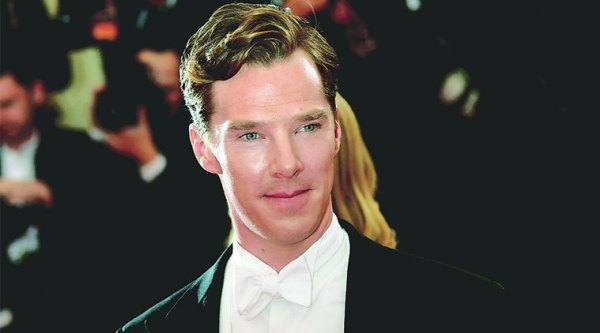Click here to follow Screen Digital on YouTube and stay updated with the latest from the world of cinema.

Like many people, British actor Benedict Cumberbatch knew very little about Alan Turing, the genius mathematician he portrays in The Imagination Game. Turing helped to hasten the end of World War Two by cracking Germany’s wartime communication’s code.
Turing’s top-secret work with cryptologists and math wizards at Britain’s decryption center, Bletchley Park saved countless lives by breaking Germany’s Enigma machine code. But the computer pioneer received no credit, died a broken man, and was only pardoned for charges of homosexuality, a crime in 1952, 60 years after his death in 1954.
“I was shocked at how little I knew before reading the story,” said Cumberbatch, 38, best known for leading roles in TV series Sherlock and The Fifth Estate. “It is such a heart-wrenching true story that needs to be heard. There is an urgency about presenting it to the world.”
The Imitation Game is based on the book Alan Turing: The Enigma by Andrew Hodges and opens in theaters in the U.S. on Friday. The film pieces together Turing’s story, work, relationships and injustices he suffered such as chemical castration because of his homosexuality. British actress Keira Knightley plays Joan Clarke, a brilliant mathematician and the only woman on Turing’s decoding team. Clarke was briefly engaged to Turing and wanted to marry him, despite his homosexuality. Cumberbatch’s portrayal of the awkward, sensitive Turing has made him a contender for a Best Actor Oscar nomination and Morten Tyldum (Headhunters) is tipped to a receive a nod for Best Director.
Tyldum said he never envisioned anyone, but Cumberbatch in the role. “This character is so complex and I wanted to make it a unique character. He is so strong and driven and at the same time, so awkward and so fragile. The core of it is this young boy who lost so much,” said the Danish director. Cumberbatch said he tried to get every nuance and complexity about Turing just right and admitted working himself into a state until he realized he was thinking about Turing, and not thinking as him.
“What bore on me quite heavily was the idea that this man’s story to a large extent is an unknown story, and doing something culturally that helps define his legacy a little bit,” he said. “That’s an onerous task when you are talking about someone who achieved so much in such a short life.”
Click here to follow Screen Digital on YouTube and stay updated with the latest from the world of cinema.